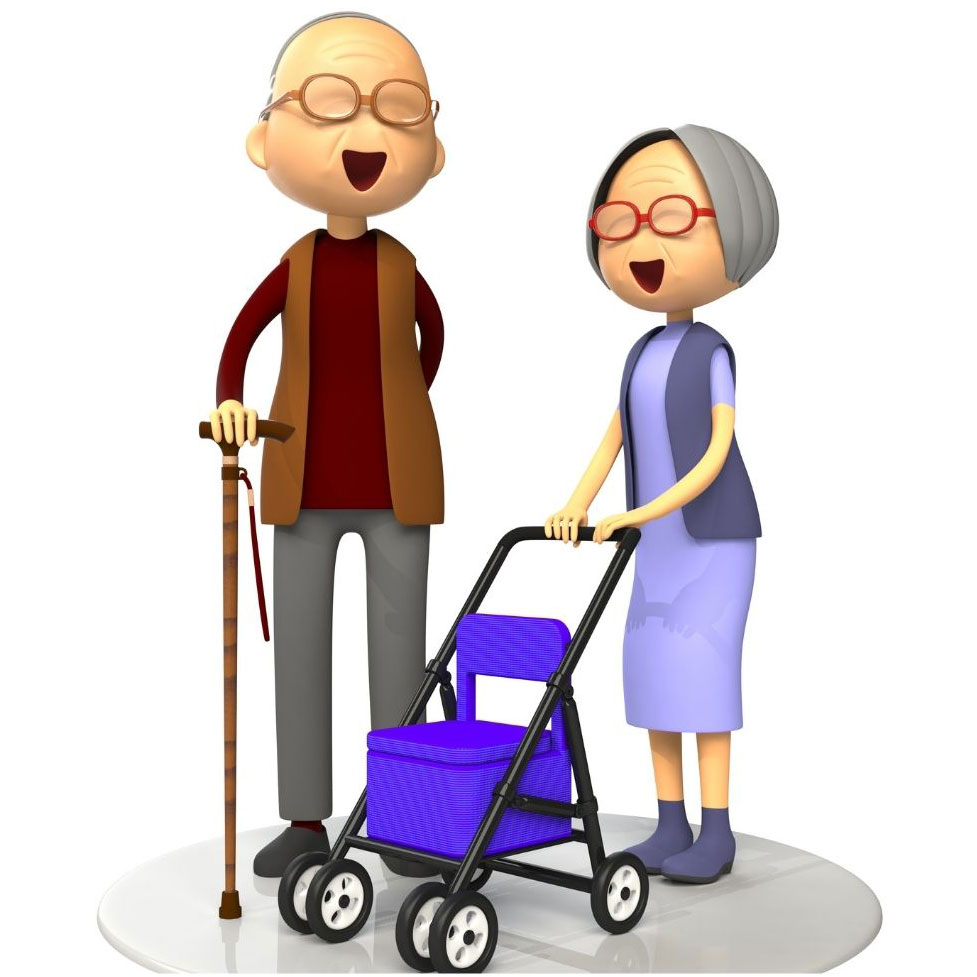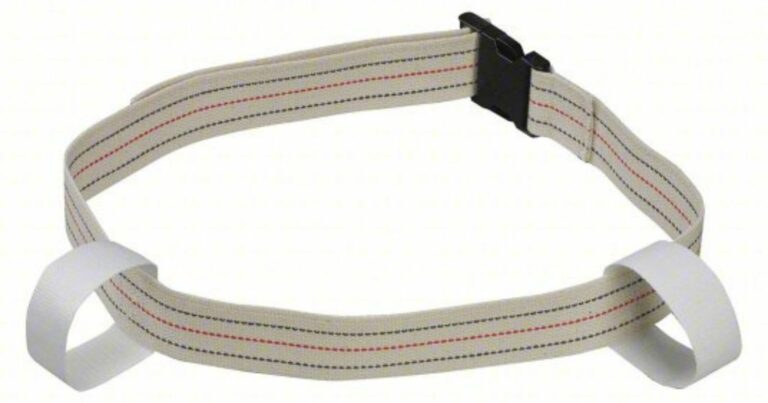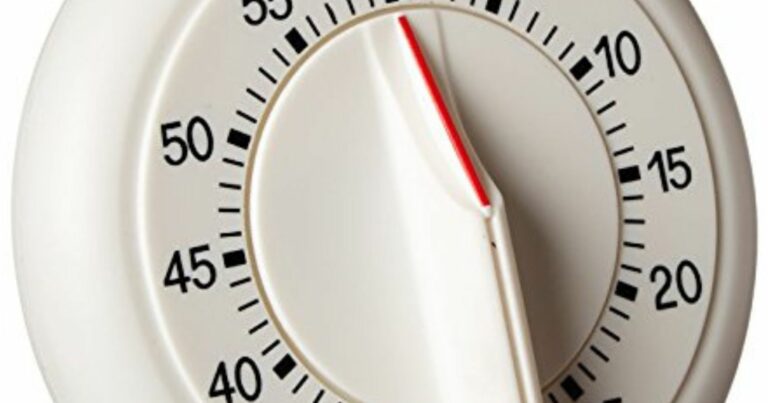Regular eye check-ups are crucial for seniors as they age. As we get older, our eyes undergo various changes that can affect our vision and overall eye health. By prioritizing regular eye exams, seniors can detect and address any potential issues early on, leading to better outcomes and improved quality of life.
This article aims to highlight the importance of regular eye check-ups for seniors and provide valuable information on why they should make it a priority. It will delve into the potential risks and conditions that can be detected through these check-ups, emphasizing the significance of early detection and treatment. Additionally, specific recommendations and guidelines for senior eye care will be discussed, offering practical advice on how seniors can maintain healthy vision.
Why Regular Eye Check-ups are Important for Seniors

Regular eye check-ups are crucial for seniors as they age due to several reasons. Firstly, these check-ups can help detect and diagnose various eye conditions and diseases that are more common in older adults. Conditions such as cataracts, glaucoma, macular degeneration, and diabetic retinopathy can be detected early through comprehensive eye exams. Early detection is key in preventing further vision loss and managing these conditions effectively.
Secondly, regular eye check-ups can also help identify other underlying health issues. The eyes can provide valuable insights into a person’s overall health. During an eye exam, an optometrist or ophthalmologist may be able to detect signs of high blood pressure, diabetes, and even certain types of cancer. By catching these health problems early, seniors can seek appropriate medical treatment and prevent further complications.
Furthermore, regular eye check-ups allow for the prescription of corrective lenses if needed. As people age, their vision may naturally deteriorate, leading to the need for glasses or contact lenses. By regularly visiting an eye care professional, seniors can ensure that their prescription is up to date and that they are seeing as clearly as possible.
In conclusion, regular eye check-ups are of utmost importance for seniors. They not only help detect and manage eye conditions but also provide insights into overall health. By prioritizing these check-ups, seniors can maintain healthy vision, prevent vision loss, and address any underlying health issues in a timely manner.

Regular eye check-ups for seniors are crucial because they can help detect potential risks and conditions that may affect their vision and overall eye health. As we age, our eyes become more susceptible to various eye problems, and early detection is key to preventing further complications.
During an eye check-up, an optometrist or ophthalmologist will conduct a series of tests to assess the senior’s visual acuity, eye pressure, and overall eye health. These tests can help identify common eye conditions such as cataracts, glaucoma, macular degeneration, and diabetic retinopathy.
Cataracts are a common age-related condition where the lens of the eye becomes cloudy, leading to blurry vision. Glaucoma is a group of eye diseases that damage the optic nerve, often resulting in vision loss. Macular degeneration affects the central part of the retina, leading to a loss of central vision. Diabetic retinopathy is a complication of diabetes that affects the blood vessels in the retina, potentially causing vision loss.
By detecting these conditions early on, seniors can receive timely treatment and management options to prevent further deterioration of their vision. Additionally, eye check-ups can also help identify other underlying health issues such as high blood pressure or diabetes, as certain changes in the eyes can be indicative of these conditions.
In conclusion, regular eye check-ups for seniors are essential for detecting potential risks and conditions that may affect their vision and overall eye health. Early detection allows for timely intervention and treatment, ultimately preserving and maintaining their visual acuity for a better quality of life.
The Importance Of Regular Eye Check-ups For Senior:
Benefits of Early Detection and Treatment
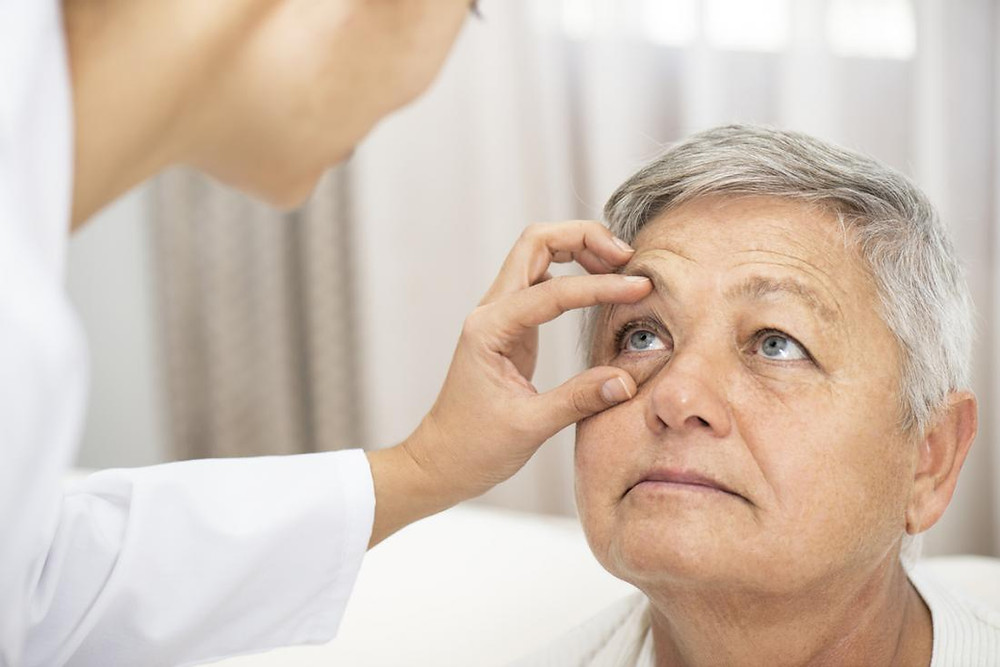
Regular eye check-ups for seniors are crucial because they allow for early detection and treatment of various eye conditions. As we age, our eyes become more susceptible to a range of issues, including cataracts, glaucoma, macular degeneration, and diabetic retinopathy. These conditions can lead to vision loss and significantly impact the quality of life for seniors.
By undergoing regular eye exams, seniors can catch these conditions in their early stages when they are more manageable. Early detection allows for prompt treatment, which can help slow down the progression of the disease and prevent further vision loss. In some cases, early treatment can even reverse the effects of certain eye conditions.
Additionally, regular eye check-ups can also help detect other underlying health issues. The eyes can provide valuable insights into a person’s overall health, as certain conditions like high blood pressure, diabetes, and even certain types of cancer can manifest in the eyes. By identifying these issues early on, seniors can seek appropriate medical care and prevent potential complications.
Furthermore, early detection and treatment can also help seniors maintain their independence and quality of life. Good vision is essential for daily activities such as reading, driving, and socializing. By addressing any vision problems early, seniors can continue to engage in these activities and maintain their independence for as long as possible.
In conclusion, regular eye check-ups for seniors offer numerous benefits, including early detection and treatment of eye conditions, identification of underlying health issues, and the preservation of independence and quality of life. It is crucial for seniors to prioritize their eye health and schedule regular check-ups with a reliable eye care provider.
The Importance Of Regular Eye Check-ups For Senior: Specific Recommendations and Guidelines for Senior Eye Care
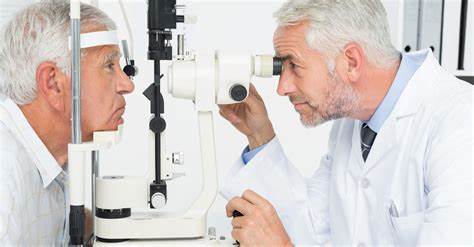
As seniors age, their eyes become more susceptible to various eye conditions and diseases. Therefore, it is crucial for them to prioritize regular eye check-ups to maintain healthy vision and detect any potential issues early on. Here are some specific recommendations and guidelines for senior eye care:
1. Schedule regular eye exams: Seniors should schedule comprehensive eye exams at least once a year, or as recommended by their eye care professional. These exams can help detect common age-related eye conditions such as cataracts, glaucoma, and age-related macular degeneration.
2. Maintain a healthy lifestyle: Seniors should adopt a healthy lifestyle to promote good eye health. This includes eating a balanced diet rich in fruits and vegetables, exercising regularly, maintaining a healthy weight, and avoiding smoking.
3. Protect your eyes: Seniors should protect their eyes from harmful UV rays by wearing sunglasses that block 100% of UVA and UVB rays. Additionally, they should wear protective eyewear when engaging in activities that could potentially cause eye injuries, such as gardening or home repairs.
4. Manage chronic health conditions: Seniors with chronic health conditions such as diabetes or hypertension should work closely with their healthcare providers to manage these conditions effectively. These conditions can increase the risk of developing eye problems, so proper management is essential.
5. Follow medication instructions: Seniors should carefully follow their medication instructions, as certain medications can have side effects that affect vision. It is important to discuss any concerns or potential side effects with their healthcare provider.
By following these recommendations and guidelines, seniors can take proactive steps to maintain healthy vision and detect any eye conditions early on. Regular eye check-ups are essential for seniors to ensure optimal eye health and overall well-being.
The Importance Of Regular Eye Check-ups For Senior: Tips for Finding a Reliable Eye Care Provider
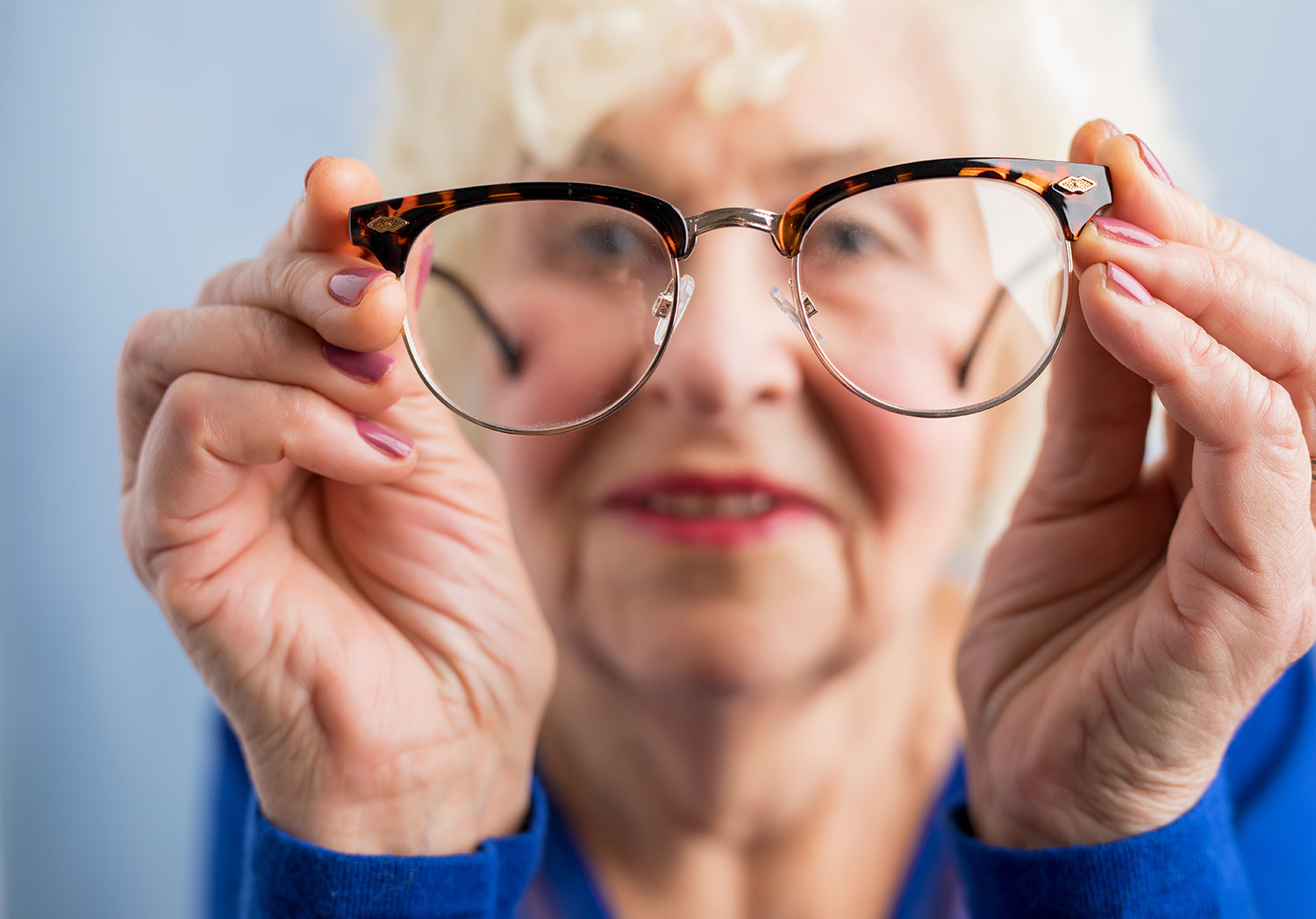
Finding a reliable eye care provider is crucial for seniors to ensure they receive the best possible care for their vision health. Here are some tips to help seniors find a trustworthy eye care provider:
1. Ask for Recommendations: Start by asking friends, family members, or healthcare professionals for recommendations. They may have had positive experiences with eye care providers and can provide valuable insights.
2. Research Credentials: Look for eye care providers who are licensed and board-certified. This ensures that they have met the necessary qualifications and standards to provide quality care.
3. Check Reviews and Ratings: Read online reviews and ratings of different eye care providers in your area. This can give you an idea of other patients’ experiences and help you make an informed decision.
4. Consider Specializations: Depending on your specific eye health needs, you may want to consider an eye care provider who specializes in a particular area, such as glaucoma or cataracts.
5. Visit the Clinic: Schedule a visit to the eye care clinic to get a sense of the environment and the staff. Pay attention to the cleanliness of the facility and the friendliness and professionalism of the staff.
6. Inquire about Insurance Coverage: If you have insurance, make sure to inquire about the coverage provided by different eye care providers. This can help you narrow down your options and choose a provider that is within your network.
By following these tips, seniors can find a reliable eye care provider who can address their specific needs and ensure their vision health is well taken care of. Regular eye check-ups with a trusted provider can help detect and treat any potential issues early on, leading to better overall eye health and quality of life.
The Importance Of Regular Eye Check-ups For Senior: How Often Seniors Should Schedule Eye Check-ups
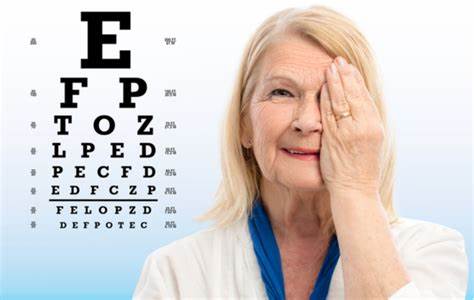
Regular eye check-ups are crucial for seniors to maintain good eye health and detect any potential issues early on. But how often should seniors schedule these check-ups?
The frequency of eye check-ups for seniors may vary depending on their overall eye health, medical history, and any existing eye conditions. However, it is generally recommended that seniors should have a comprehensive eye exam at least once a year.
As we age, our eyes become more susceptible to various eye conditions such as cataracts, glaucoma, macular degeneration, and diabetic retinopathy. Regular eye exams can help detect these conditions in their early stages when they are more manageable and treatable.
In addition to age-related eye conditions, seniors may also have other health conditions that can affect their eye health, such as diabetes or high blood pressure. These conditions may require more frequent eye check-ups to monitor any changes or complications.
It is important for seniors to follow the recommendations of their eye care provider regarding the frequency of eye check-ups. They may need more frequent exams if they have a history of eye problems or if they are experiencing any symptoms such as blurry vision, eye pain, or changes in their vision.
By scheduling regular eye check-ups, seniors can ensure that any potential eye issues are detected and treated early, reducing the risk of vision loss and maintaining good eye health as they age.
The Importance Of Regular Eye Check-ups For Senior: Common Eye Conditions in Seniors
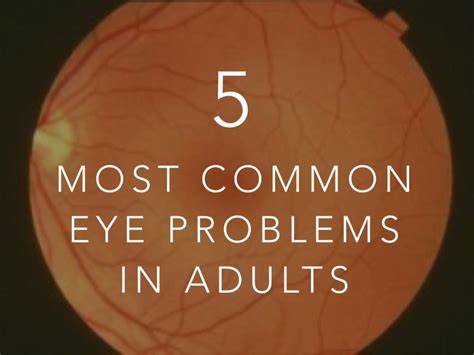
As seniors age, they become more susceptible to various eye conditions and diseases. Regular eye check-ups are crucial for detecting and managing these conditions early on. Here are some common eye conditions that seniors may experience:
1. Age-related macular degeneration (AMD): AMD is a leading cause of vision loss in seniors. It affects the macula, the part of the retina responsible for central vision. Regular eye exams can help detect AMD in its early stages, allowing for timely treatment and management.
2. Cataracts: Cataracts occur when the lens of the eye becomes cloudy, leading to blurry vision. Seniors are more prone to developing cataracts, and regular eye check-ups can help monitor their progression and determine when surgery may be necessary.
3. Glaucoma: Glaucoma is a group of eye conditions that damage the optic nerve, often due to increased pressure in the eye. It can lead to vision loss if left untreated. Regular eye exams can detect glaucoma early on, allowing for effective treatment and management.
4. Diabetic retinopathy: Seniors with diabetes are at risk of developing diabetic retinopathy, a condition that affects the blood vessels in the retina. Regular eye check-ups are essential for monitoring the progression of diabetic retinopathy and preventing vision loss.
5. Dry eye syndrome: Dry eye syndrome is a common condition in seniors, characterized by insufficient tear production or poor tear quality. Regular eye exams can help identify the underlying causes and provide appropriate treatment options.
By prioritizing regular eye check-ups, seniors can stay proactive in maintaining their eye health and managing any potential conditions or diseases that may arise. Early detection and treatment can significantly improve outcomes and preserve vision for a better quality of life.
The Importance Of Regular Eye Check-ups For Senior :Lifestyle Changes to Maintain Healthy Vision in Seniors
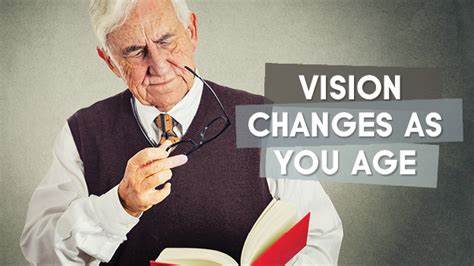
As seniors age, it becomes increasingly important for them to make certain lifestyle changes to maintain healthy vision. These changes can help prevent or slow down the progression of common eye conditions and promote overall eye health. Here are some key lifestyle changes that seniors should consider:
1. Eat a nutritious diet: A diet rich in fruits, vegetables, and omega-3 fatty acids can provide essential nutrients that support eye health. Foods like leafy greens, citrus fruits, fish, and nuts are particularly beneficial for maintaining healthy vision.
2. Quit smoking: Smoking has been linked to an increased risk of developing age-related macular degeneration (AMD), cataracts, and other eye conditions. Quitting smoking can significantly reduce the risk of these conditions and improve overall eye health.
3. Protect your eyes from UV rays: Prolonged exposure to UV rays can increase the risk of developing cataracts and other eye conditions. Seniors should wear sunglasses that block 100% of UV rays and a wide-brimmed hat when spending time outdoors.
4. Maintain a healthy weight: Obesity and being overweight can increase the risk of developing diabetes, which can lead to diabetic retinopathy and other eye problems. Seniors should strive to maintain a healthy weight through regular exercise and a balanced diet.
5. Practice good eye hygiene: Seniors should avoid rubbing their eyes excessively, as this can cause irritation and potentially lead to eye infections. It is also important to regularly clean eyeglasses and contact lenses to prevent eye infections.
By making these lifestyle changes, seniors can take proactive steps to maintain healthy vision and reduce the risk of developing common eye conditions. It is important for seniors to consult with their eye care provider for personalized recommendations and guidance on maintaining optimal eye health.
Frequently Asked Questions
Why are eye exams important for seniors?
eniors should have comprehensive dilated eye exams annually to look for signs of disease. Dilation is especially important for seniors, as it allows the doctor to get a good look at the back of the eye, where many problems first develop.
How often should the elderly have their eyes checked?
every two years
The American Academy of Ophthalmology recommends that seniors should have their vision screened at least annually. Optometrists might recommend seeing the elderly every two years, depending on how much they smoke, whether they wear contact lenses, or if they have certain eye conditions.
What is the eye problem for senior?
Common Age-Related Eye Problems. Common age-related eye problems include presbyopia, glaucoma, dry eyes, age-related macular degeneration, cataracts and temporal arteritis. You should make sure to keep up with regular eye doctor appointments, especially if you have diabetes.
Additional Information
Conclusion
In conclusion, regular eye check-ups are of utmost importance for seniors. These check-ups not only help in detecting potential risks and conditions but also provide numerous benefits through early detection and treatment.
By prioritizing eye exams, seniors can identify and address any vision problems at an early stage. This can prevent the progression of conditions such as cataracts, glaucoma, macular degeneration, and diabetic retinopathy, which are common among older adults. Early detection allows for timely intervention and treatment, which can significantly improve the chances of preserving vision and maintaining a good quality of life.
Furthermore, regular eye check-ups provide an opportunity for eye care professionals to assess the overall health of seniors. Certain eye conditions can be indicative of underlying health issues such as diabetes, hypertension, and cardiovascular disease. Detecting these conditions early on can lead to prompt medical intervention and better management of overall health.
To ensure the best possible eye care, it is essential for seniors to find a reliable eye care provider. Recommendations from friends, family, or healthcare professionals can be helpful in this regard. Additionally, seniors should schedule eye check-ups at least once a year, or as recommended by their eye care provider.
In addition to regular eye check-ups, seniors should also make certain lifestyle changes to maintain healthy vision. This includes eating a balanced diet rich in fruits and vegetables, protecting the eyes from harmful UV rays, quitting smoking, and managing chronic health conditions effectively.
By understanding the importance of regular eye check-ups and taking proactive measures, seniors can safeguard their vision and enjoy a better quality of life in their golden years.
